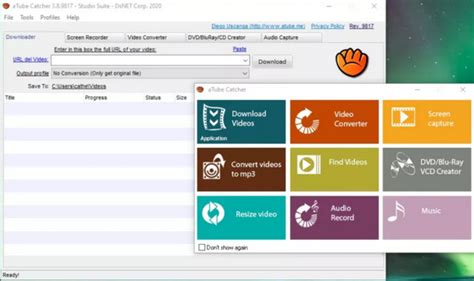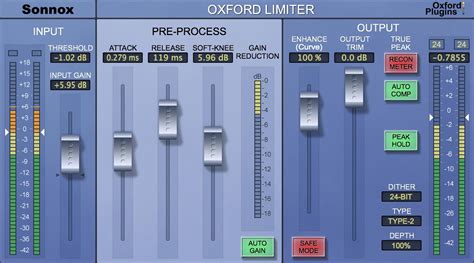Error 4000 fedora linux
Author: m | 2025-04-24

I am using linux version of Firefox (90.0.2 on Fedora 34) and I keep getting error 4000 (or 6000) while trying to open a stream on www.twitch.tv site. I've tried opening browser in

Error installing Fedora linux 40? - Fedora Discussion
Download + resteasy-jettison-provider-jandex.jar a0115b2e59dadeb3065ba5d9b73ec6f6 62.00 B Application Fedora 23 Server 32-bit 2015 Author Red Hat, Inc. Version Linux Type 64-bit (x64) Bytes 62 MD5 Checksum a0115b2e59dadeb3065ba5d9b73ec6f6 SHA1 Checksum ef5223f08f2f4e166101e73f544febbbda4d584b CRC32: 52c7806a + resteasy-jettison-provider-jandex.jar 20f0275d17e52786d6c6ba0a6d44ef96 874.00 B Application Fedora 23 Server 32-bit 2015 Author Red Hat, Inc. Version Linux Type 64-bit (x64) Bytes 874 MD5 Checksum 20f0275d17e52786d6c6ba0a6d44ef96 SHA1 Checksum 0840046c68982fc2f2501db2e0f58c1ef2c824e7 CRC32: d4117003 + resteasy-jettison-provider-jandex.jar a0115b2e59dadeb3065ba5d9b73ec6f6 62.00 B Application Fedora 23 Server 64-bit 2015 Author Red Hat, Inc. Version Linux x64 Type 64-bit (x64) Bytes 62 MD5 Checksum a0115b2e59dadeb3065ba5d9b73ec6f6 SHA1 Checksum ef5223f08f2f4e166101e73f544febbbda4d584b CRC32: 52c7806a + resteasy-jettison-provider-jandex.jar 20f0275d17e52786d6c6ba0a6d44ef96 874.00 B Application Fedora 23 Server 64-bit 2015 Author Red Hat, Inc. Version Linux x64 Type 64-bit (x64) Bytes 874 MD5 Checksum 20f0275d17e52786d6c6ba0a6d44ef96 SHA1 Checksum 0840046c68982fc2f2501db2e0f58c1ef2c824e7 CRC32: d4117003 Classic Resteasy-jettison-provider-jandex.jar Problems Top resteasy-jettison-provider-jandex.jar errors with Fedora 23 Server 32-bit in Windows: "Resteasy-jettison-provider-jandex.jar error." "Resteasy-jettison-provider-jandex.jar has gone missing." "Not found: resteasy-jettison-provider-jandex.jar." "Resteasy-jettison-provider-jandex.jar module failed to load." "Registration failure: resteasy-jettison-provider-jandex.jar." "Resteasy-jettison-provider-jandex.jar error at runtime." "Can't load resteasy-jettison-provider-jandex.jar." The resteasy-jettison-provider-jandex.jar error happens during flawed program installs, while resteasy-jettison-provider-jandex.jar-issued applications are running, during Windows install, or PC startup or shutdown. Documenting resteasy-jettison-provider-jandex.jar problem occasions in Fedora 23 Server 32-bit is key to determine cause of the Operating System problems, and reporting them to Red Hat, Inc.. Resteasy-jettison-provider-jandex.jar Problem Causes resteasy-jettison-provider-jandex.jar issues are caused by a corrupt or missing resteasy-jettison-provider-jandex.jar, invalid registry keys associated with Fedora 23 Server 32-bit, or a malware infection. Chiefly, complications of resteasy-jettison-provider-jandex.jar due to: Invalid resteasy-jettison-provider-jandex.jar (or corrupted) registry key. Virus or malware corrupted resteasy-jettison-provider-jandex.jar. I am using linux version of Firefox (90.0.2 on Fedora 34) and I keep getting error 4000 (or 6000) while trying to open a stream on www.twitch.tv site. I've tried opening browser in Cockpit is an easy-to-use, lightweight, and simple yet powerful remote manager for GNU/Linux servers, it’s an interactive server administration user interface that offers a live Linux session via a web browser.It can run on several RHEL-based Linux distributions and Debian derivatives including Ubuntu, Linux Mint, Fedora, CentOS, Rocky Linux, AlmaLinux, Arch Linux among others.Cockpit makes Linux discoverable thereby enabling system administrators to easily and reliably carry out tasks such as starting containers, managing storage, network configurations, log inspections coupled with several others.[ You might also like: 20 Command Line Tools to Monitor Linux Performance ]While using it, users can easily switch between the Linux terminal and web browser without any hustles. Importantly, when a user starts a service via Cockpit, it can be stopped via the terminal, and just in case of an error that occurs in the terminal, it is shown in the Cockpit journal interface.Features of Cockpit:Enables managing of multiple servers in one Cockpit session.Offers a web-based shell in a terminal window.Containers can be managed via Docker.Supports efficient management of system user accounts.Collects system performance information using the Performance Co-Pilot framework and displays it in a graph.Supports gathering of system configuration and diagnostic information using sos-report.Also supports a Kubernetes cluster or an Openshift v3 cluster.Allows modification of network settings and many more.How to Install Cockpit in Linux SystemsYou can install Cockpit in all Linux distributions from their default official repositories as shown:Install Cockpit on Fedora and CentOSTo install and enable Cockpit on Fedora distributions, use the following commands.# yum install cockpit# systemctl enable --now cockpit.socket# firewall-cmd --add-service=cockpit# firewall-cmd --add-service=cockpit --permanent# firewall-cmd --reloadInstall Cockpit on Rocky Linux and AlmaLinuxTo install and enable Cockpit on Rocky/AlmaLinux distributions, use the following commands.# yum install cockpit# systemctl enable --now cockpit.socket# firewall-cmd --add-service=cockpit# firewall-cmd --add-service=cockpit --permanent# firewall-cmd --reloadInstall Cockpit on RHELCockpit is addedComments
Download + resteasy-jettison-provider-jandex.jar a0115b2e59dadeb3065ba5d9b73ec6f6 62.00 B Application Fedora 23 Server 32-bit 2015 Author Red Hat, Inc. Version Linux Type 64-bit (x64) Bytes 62 MD5 Checksum a0115b2e59dadeb3065ba5d9b73ec6f6 SHA1 Checksum ef5223f08f2f4e166101e73f544febbbda4d584b CRC32: 52c7806a + resteasy-jettison-provider-jandex.jar 20f0275d17e52786d6c6ba0a6d44ef96 874.00 B Application Fedora 23 Server 32-bit 2015 Author Red Hat, Inc. Version Linux Type 64-bit (x64) Bytes 874 MD5 Checksum 20f0275d17e52786d6c6ba0a6d44ef96 SHA1 Checksum 0840046c68982fc2f2501db2e0f58c1ef2c824e7 CRC32: d4117003 + resteasy-jettison-provider-jandex.jar a0115b2e59dadeb3065ba5d9b73ec6f6 62.00 B Application Fedora 23 Server 64-bit 2015 Author Red Hat, Inc. Version Linux x64 Type 64-bit (x64) Bytes 62 MD5 Checksum a0115b2e59dadeb3065ba5d9b73ec6f6 SHA1 Checksum ef5223f08f2f4e166101e73f544febbbda4d584b CRC32: 52c7806a + resteasy-jettison-provider-jandex.jar 20f0275d17e52786d6c6ba0a6d44ef96 874.00 B Application Fedora 23 Server 64-bit 2015 Author Red Hat, Inc. Version Linux x64 Type 64-bit (x64) Bytes 874 MD5 Checksum 20f0275d17e52786d6c6ba0a6d44ef96 SHA1 Checksum 0840046c68982fc2f2501db2e0f58c1ef2c824e7 CRC32: d4117003 Classic Resteasy-jettison-provider-jandex.jar Problems Top resteasy-jettison-provider-jandex.jar errors with Fedora 23 Server 32-bit in Windows: "Resteasy-jettison-provider-jandex.jar error." "Resteasy-jettison-provider-jandex.jar has gone missing." "Not found: resteasy-jettison-provider-jandex.jar." "Resteasy-jettison-provider-jandex.jar module failed to load." "Registration failure: resteasy-jettison-provider-jandex.jar." "Resteasy-jettison-provider-jandex.jar error at runtime." "Can't load resteasy-jettison-provider-jandex.jar." The resteasy-jettison-provider-jandex.jar error happens during flawed program installs, while resteasy-jettison-provider-jandex.jar-issued applications are running, during Windows install, or PC startup or shutdown. Documenting resteasy-jettison-provider-jandex.jar problem occasions in Fedora 23 Server 32-bit is key to determine cause of the Operating System problems, and reporting them to Red Hat, Inc.. Resteasy-jettison-provider-jandex.jar Problem Causes resteasy-jettison-provider-jandex.jar issues are caused by a corrupt or missing resteasy-jettison-provider-jandex.jar, invalid registry keys associated with Fedora 23 Server 32-bit, or a malware infection. Chiefly, complications of resteasy-jettison-provider-jandex.jar due to: Invalid resteasy-jettison-provider-jandex.jar (or corrupted) registry key. Virus or malware corrupted resteasy-jettison-provider-jandex.jar.
2025-04-03Cockpit is an easy-to-use, lightweight, and simple yet powerful remote manager for GNU/Linux servers, it’s an interactive server administration user interface that offers a live Linux session via a web browser.It can run on several RHEL-based Linux distributions and Debian derivatives including Ubuntu, Linux Mint, Fedora, CentOS, Rocky Linux, AlmaLinux, Arch Linux among others.Cockpit makes Linux discoverable thereby enabling system administrators to easily and reliably carry out tasks such as starting containers, managing storage, network configurations, log inspections coupled with several others.[ You might also like: 20 Command Line Tools to Monitor Linux Performance ]While using it, users can easily switch between the Linux terminal and web browser without any hustles. Importantly, when a user starts a service via Cockpit, it can be stopped via the terminal, and just in case of an error that occurs in the terminal, it is shown in the Cockpit journal interface.Features of Cockpit:Enables managing of multiple servers in one Cockpit session.Offers a web-based shell in a terminal window.Containers can be managed via Docker.Supports efficient management of system user accounts.Collects system performance information using the Performance Co-Pilot framework and displays it in a graph.Supports gathering of system configuration and diagnostic information using sos-report.Also supports a Kubernetes cluster or an Openshift v3 cluster.Allows modification of network settings and many more.How to Install Cockpit in Linux SystemsYou can install Cockpit in all Linux distributions from their default official repositories as shown:Install Cockpit on Fedora and CentOSTo install and enable Cockpit on Fedora distributions, use the following commands.# yum install cockpit# systemctl enable --now cockpit.socket# firewall-cmd --add-service=cockpit# firewall-cmd --add-service=cockpit --permanent# firewall-cmd --reloadInstall Cockpit on Rocky Linux and AlmaLinuxTo install and enable Cockpit on Rocky/AlmaLinux distributions, use the following commands.# yum install cockpit# systemctl enable --now cockpit.socket# firewall-cmd --add-service=cockpit# firewall-cmd --add-service=cockpit --permanent# firewall-cmd --reloadInstall Cockpit on RHELCockpit is added
2025-04-18Default locale: No such file or directoryWhy does this locale error happen? Well, that’s because your SSH client forwards your locale environment variables from your local computer to the remote Linux server which doesn’t have the needed locale generated.This happens a lot if you are not a native English speaker. Normally you would configure a non-English language on your local computer, but most Linux servers by default only have the C locale (aka POSIX locale) and English locales generated.Now let me show you 3 ways to fix this error.Method 1: Generate Locales on the ServerTo fix this error, you can generate the needed locales on the Linux server. First open the /etc/locale.gen file on your server.sudo nano /etc/locale.genFind the needed locale and remove the # sign to uncomment. For example, to generate zh_CN.UTF-8 locale, find this line:#zh_CN.UTF-8 UTF-8Remove and # sign. Save and close the file. Then run the following command to generate it.sudo locale-genlocale-gen reads /etc/locale.gen file to know what locales to generate. You can also generate multiple locales by uncommenting multiple lines in that file.Method 2: Refuse Client Locale Environment VariableYou can tell your SSH server to refuse client locale environment variable. Open the SSH server configuration file on your Linux server.sudo nano /etc/ssh/sshd_configFind the following line.AcceptEnv LANG LC_*Change it toAcceptEnv noSave and close the file. Then restart SSH daemon.sudo systemctl restart sshOn RHEL, CentOS, Fedora, you need to runsudo systemctl restart sshdOn Fedora/CentOS server, then are multiple locale-related SSH settings.AcceptEnv LANG LC_CTYPE LC_NUMERIC LC_TIME LC_COLLATE LC_MONETARY LC_MESSAGESAcceptEnv
2025-04-12